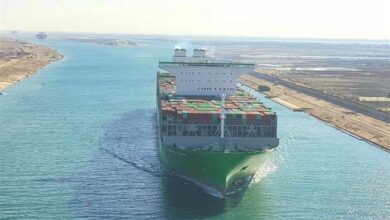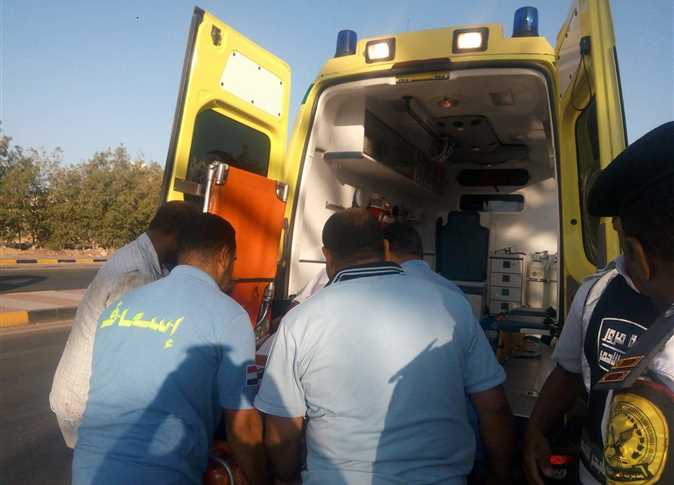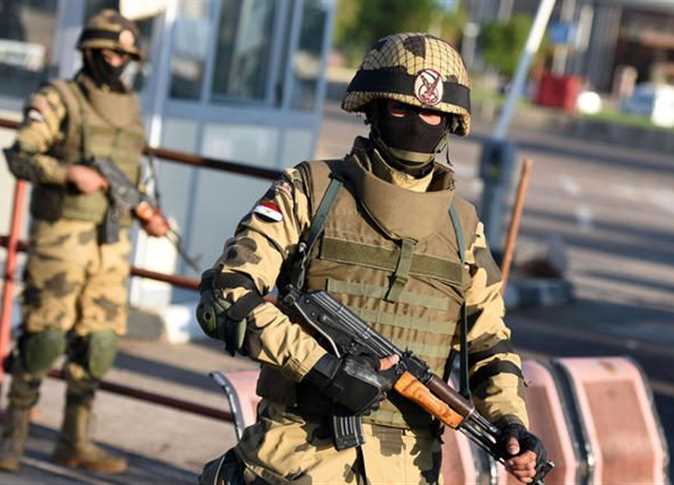The city of Suez exploded in anger yesterday after a court rejected the public prosecutor’s appeal against the release on bail of seven police officers charged with murdering protesters during Egypt's 18-day uprising.
The alleged murderers are now scheduled for a 14 September hearing, along with four civilian defendants, businessman Ibrahim Farag and his three sons.
The families of those killed in the uprising waited for the judge’s decision at Irbain Square in Suez from 7 am, along with a varying number of demonstrators throughout the day. Upon hearing the decision, the demonstrators reacted angrily, heading to the city’s Security Directorate and main courthouse, briefly clashing with police and continuing to protest throughout the day.
“The authorities will do what they want. They knew Suez would react this way,” said Tamer Radwan, whose brother Sherif, a 30-year-old petroleum engineer, was killed on 28 January.
The decision to postpone the trial, and release seven of the ten accused police officers – three of whom never appeared in court and are considered fugitives – came at a critical time, as Egyptians gear up for protests planned for 8 July.
Various recent events have helped lend power to calls for further protests across Egypt. On 27-28 June, several families of people killed in the revolution clashed with Central Security Forces in Cairo, with thousands of citizens turning out to join the fray in support of the familes. The fierce fighting in downtown Cairo convinced many to join protests over the apparent lack of reform in the Interior Ministry since the January uprising.
In Suez, the trial of those charged with murdering protesters during the uprising has stirred many into action, especially over the last week.
"When the first martyr, Moustafa Ragab, fell in Suez on 25 January, an old man rallied everyone by saying, ‘We are no less than Tunisia.’ Now it seems like what’s happening with the lack of justice for the martyrs will be the rallying call,” said Ahmed Shalaby a 31-year-old journalist and activist.
The Coalition of Suez Youth – a group that includes prominent political and activist groups in the city, such as the April 6 Youth Movement, Ghad and Wafd Parties and the Egyptian Democratic Front – has taken up the issue of justice for martyrs as a main slogan for Friday protests.
“We are beginning to feel that the blood of our children has been shed for nothing and their families are being insulted by the authorities instead of honored,” said Medhat Eissa, the spokesman for the coalition.
The first Criminal Court of Suez in New Cairo originally ordered the 4 July release of the defendants, to the outrage of martyrs' families who charged them with murder. On their way back from Cairo, the roughly 200 grieving family members blockaded the Cairo-Suez road for five hours, while many Suez residents protested in the streets.
“We decided to protest in a way that would put all of Egypt on alert. Everyone needs to understand that we saw our family members killed for no reason, and we watched their murderers go free, cursing our families as they were let out,” said Radwan.
After clashing with military police on the road, the protesters said they refused to budge until the public prosecutor or court had placed the accused in custody. They only agreed to open the highway again when the public prosecutor appealed the decision to release the police officers.
But, according to Ibrahim Tantawi, a lawyer for the defendants, the court had no right to order an appeal. “The criminal court has the absolute authority in deciding to release suspects on bail during a trial,” said Tantawi.
Adding to their anger and frustration, families of the martyrs claim that they have been tricked since the beginning of the trials. “They knew where all of the missing police officers were, and didn’t bother to arrest them,” said Amal Abdel-Fattah, sister of Farag Abdel-Fattah, who was killed on 28 January.
Lawyers for the martyrs feel that the public prosecutor made the appeals claim only to convince them to open the Cairo-Suez road and not with any true legal purpose in mind.
“We knew that the appeal would not go through. We wanted the public prosecutor to open a new claim and call for a new trial, based on new evidence and 41 other accused officers,” said Amin Dahshour, a member of the legal team for the martyrs' families.
The public prosecutor also issued an arrest warrant for the head of the Suez Security Directorate, Osama al-Taweel, the morning of the appeal for allegedly aiding and abetting the disappearance of some of the accused police officers on the day of the 12 June hearing.
However, the warrant, while appeasing the families of the martyrs, was only valid for four hours, until the court upheld the release order.
According to Gamal Rahban, a member of the defendants’ legal team, there is no legitimate basis for the public prosecutor's appeal.
“This is a response to bullying and thugs who decided to blockade a public road to pressure the government. These so-called 'martyrs' aren’t the real revolutionaries, the youth who organized on Facebook,” said Rahban.
Rahban also says that the prosecution has not presented any incriminating evidence against the police officers.
Lawyers for the families of the deceased, however, claim that they have video evidence and eye-witness testimonies identifying many of the defendants.
The four civilian defendants, Farag and sons, have never been arrested, despite the issuance of warrants for their arrests.
Notorious “businessman” Ibrahim Farag and his three sons are accused in the murder of Sherif Radwan. Their disappearance is considered to be an added provocation, especially since many eyewitnesses and – according to Tamer Radwan – incriminating videos were submitted as evidence that they shot at protesters on 28 January.
On Wednesday, two of Farag’s sons were allegedly invited to appear as guests on a television show, and left the studio upon finding out that several relatives of martyrs has also been invited.
“I don’t know how he was even there, when there is a warrant out for his arrest,” said Radwan, who accuses Ibrahim Farag of killing his brother. Radwan claims he was offered a bribe of LE1 million by an unknown caller, who told him to drop the charges against Farag, and threatened him, saying, “You should fear for your sons and wife.”
Such provocative actions ahead of the 8 July protests only help to create a more charged atmosphere in a city already known for its defiance.




